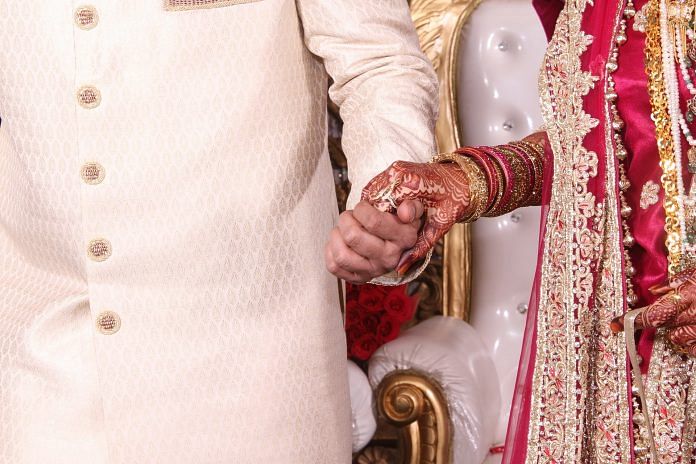A Hisar woman in December reported that she was gangraped by three men in a moving auto. The mother of three, however, is yet to report the marital abuse she claims to have suffered in her eight-year marriage.
A 27-year-old beauty parlour worker in Hisar had heard of the moniker people used for her state, Haryana: the “gang rape capital” of India. Its brutal reality hit her hard on a cold December night when she claims she was gangraped in a moving auto by three men, including the auto rickshaw driver himself.
But this was not the first time the mother of three had been raped. In her eight-year marriage, she claims, she was raped almost every day by her husband. In fact, even after the horrific incident in December, her husband continued to force his sexual might on her.
The woman reported the gangrape the same night. Ironically, it was her husband who accompanied her to the police station in Hisar.
The gangrape incident caught the attention of the local and the national media, and all three men were arrested within days. The case is now being fought in the district court.
But to this day, she hasn’t been able to report the marital rape she claims to have suffered silently for years.
Contrary to popular fears of marital rape and its likely misuse as a weapon by women, pursuing legal action against her husband has not even occurred to her – even though she has now walked out on him.
Like the Hisar woman, legal action against husbands for sexual abuse is a path most women avoid. They continue to accept it and not challenge it in courts. Their attitude toward marital rape is as ambiguous as the government’s.
Last year, the Centre said in an affidavit to the Delhi high court that what “may appear to be marital rape” to a wife “may not appear so to others”. It also cited the “rising misuse of Section 498A of IPC” in an attempt to highlight how women-centric laws can be misused for “harassing husbands”.
But far from the government’s fears about misuse, the story of the Hisar woman shows that the violation of her bodily integrity by strangers was grounds for her to pursue legal action, but by not her husband.
In the weeks after she was gangraped, fights with her husband – who works as an electrician – intensified. Instead of supporting her in the daunting legal battle, he would throw jibes at her and blame her for the rape. “He would tell me I did all this for money,” she recalled, as she sat alone in her lawyer’s chamber in the district court.
Her legal battle, like her marriage, has been a lonely one. “My mother has been supportive so far, but had I told her before filing the case, she wouldn’t have allowed me to file it,” she said. Her husband has not even appeared as a witness in the case even though she and her lawyer have asked him several times. He is a material witness in the case because he was waiting for her at a bus stop at the time of the incident.
Abuse in the marriage, she claimed, had started early on. “We would never sit and talk…I would just lie like a dead body in front of him while he satisfied himself night after night.”
Alcohol would make her ordeals worse. “He would even beat me up after drinking…Once, he fractured one of my bones here,” she claimed, as she points towards her chest. “He would also do something very strange. Sometimes, he would make me drink forcibly, even though I would resist it… And then I would lose consciousness, and he would tell me the next morning that he had intercourse with me,” she said, staring blankly at her hands.
Yet, in what perfectly captures the reality of how society perceives marital abuse in India, her mother and elder sister, with whom she now stays, are persuading her to “save her marriage”.
“My mother still says I should go back to him for the sake of my children,” she said. “My husband has never even called to check the status of the case or even asked me how I’m doing. How can I go back to him if he hasn’t been there for me after something so big happened?”
Women, in general, are conditioned to tolerate abuse, which more often than not has sanction even from their parents.There is family and social pressure on women to save their marriage first, and overlook abuse. And yet, the government, judiciary and people are too suspicious to grant women what ought to be a fundamental right to sexual autonomy within marriage.



